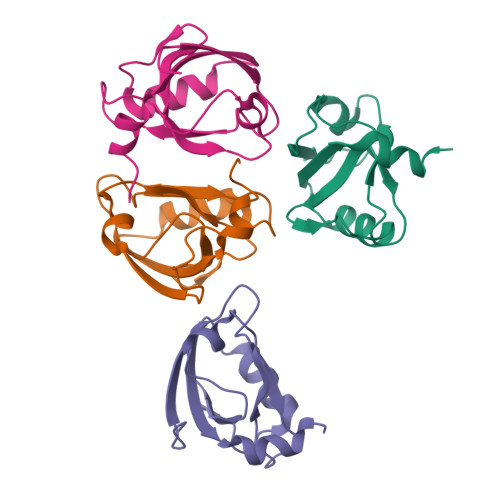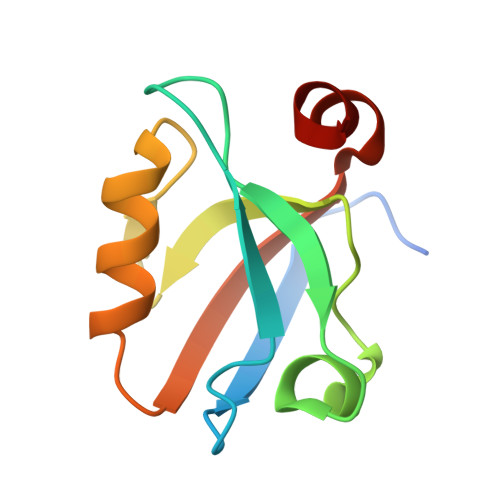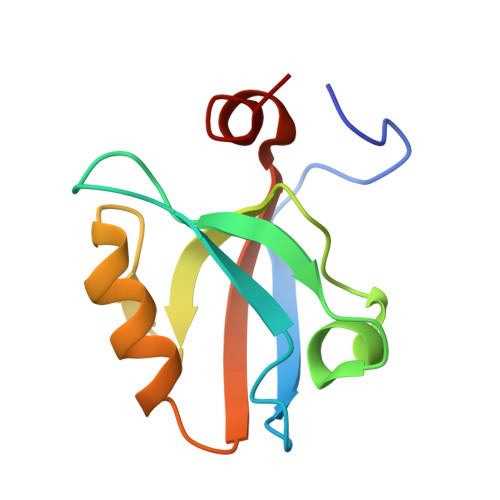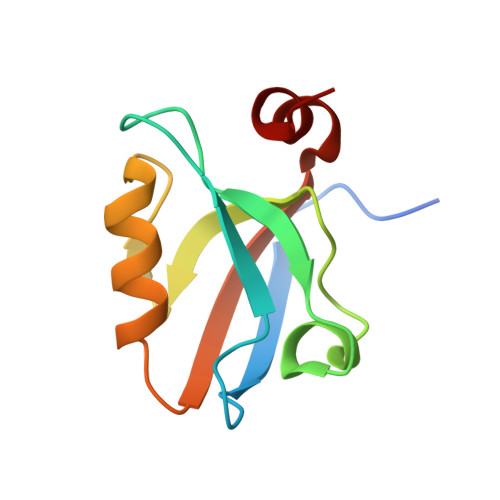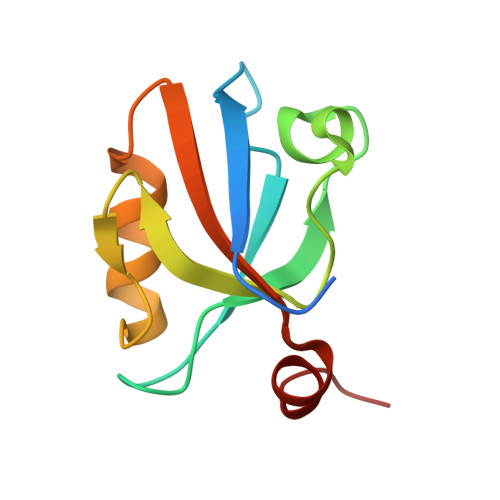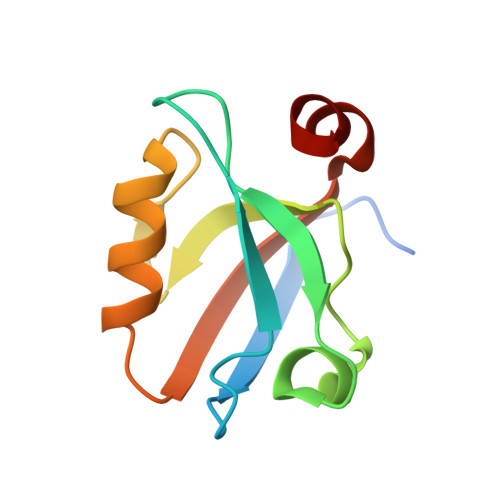Conformational changes in the third PDZ domain of the neuronal postsynaptic density protein 95.
Camara-Artigas, A., Murciano-Calles, J., Martinez, J.C.(2019) Acta Crystallogr D Struct Biol 75: 381-391
- PubMed: 30988255
- DOI: https://doi.org/10.1107/S2059798319001980
- Primary Citation of Related Structures:
6QJD, 6QJF, 6QJG, 6QJI, 6QJJ, 6QJK, 6QJL, 6QJN - PubMed Abstract:
PDZ domains are protein-protein recognition modules that interact with other proteins through short sequences at the carboxyl terminus. These domains are structurally characterized by a conserved fold composed of six β-strands and two α-helices. The third PDZ domain of the neuronal postsynaptic density protein 95 has an additional α-helix (α3), the role of which is not well known. In previous structures, a succinimide was identified in the β2-β3 loop instead of Asp332. The presence of this modified residue results in conformational changes in α3. In this work, crystallographic structures of the following have been solved: a truncated form of the third PDZ domain of the neuronal postsynaptic density protein 95 from which α3 has been removed, D332P and D332G variants of the protein, and a new crystal form of this domain showing the binding of Asp332 to the carboxylate-binding site of a symmetry-related molecule. Crystals of the wild type and variants were obtained in different space groups, which reflects the conformational plasticity of the domain. Indeed, the overall analysis of these structures suggests that the conformation of the β2-β3 loop is correlated with the fold acquired by α3. The alternate conformation of the β2-β3 loop affects the electrostatics of the carboxylate-binding site and might modulate the binding of different PDZ-binding motifs.
Organizational Affiliation:
Department of Chemistry and Physics, Agrifood Campus of International Excellence (ceiA3) and CIAMBITAL, University of Almería, Carretera de Sacramento, 04120 Almeria, Spain.








